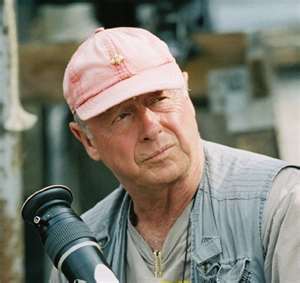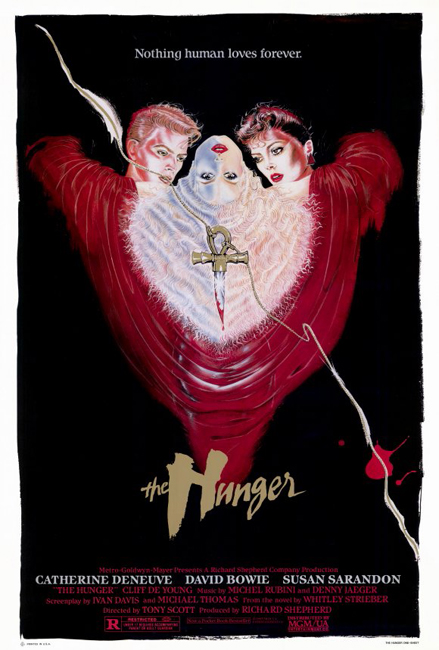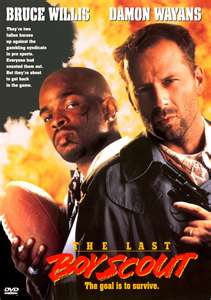 What is there to say about Tony Scott? My word would be reliable.
What is there to say about Tony Scott? My word would be reliable.
My word would be reliable.
Over a directorial career that spanned 30 years Tony Scott could always be counted on to deliver the goods in a succession of finely crafted, diverting and satisfying films. I wouldn’t call him one my favorite directors, but his films have been a constant of my movie going life since viewing an afternoon matinee of TOP GUN back in the summer of 1986. It was in that iconic blockbuster that Mr. Scott, after years of floundering in the Hollywood trenches, found his true calling as one of Hollywood’s most indefatigable and resourceful hit makers. I hear he was also a hell of a nice guy, so much so that he reportedly slapped two actresses—Chelsea Field on the set of THE LAST BOY SCOUT and Patricia Arquette on TRUE ROMANCE—without suffering any repercussions.
Unless you’ve been living under a rock you’re probably aware that Tony Scott, aged 68, committed suicide on August 19, 2012 by leaping from the Vincent Thomas Bridge in San Pedro, CA. The whys of his actions have already been argued over at some length—a brain tumor has been identified as the cause (altho ugh his family disputes that notion), as have manic depression and a possible CURE-like suicide plague. Then there was Ian Grey’s 1998 nonfiction tome SEX, STUPIDITY AND GREED, in which the author reminisces about meeting a drunken Tony Scott in the early 1980s, who bitches at length about his (then) more successful brother Ridley. It’s a fact that Ridley Scott got the type of critical adulation and Academy Award attention that Tony never achieved, which may have had some bearing on his actions of August ‘12. In truth, however, we’ll never know the reason Scott jumped off that bridge, frustrating though that fact may be. He did, at least, leave behind an impressive collection of films for us to enjoy.
ugh his family disputes that notion), as have manic depression and a possible CURE-like suicide plague. Then there was Ian Grey’s 1998 nonfiction tome SEX, STUPIDITY AND GREED, in which the author reminisces about meeting a drunken Tony Scott in the early 1980s, who bitches at length about his (then) more successful brother Ridley. It’s a fact that Ridley Scott got the type of critical adulation and Academy Award attention that Tony never achieved, which may have had some bearing on his actions of August ‘12. In truth, however, we’ll never know the reason Scott jumped off that bridge, frustrating though that fact may be. He did, at least, leave behind an impressive collection of films for us to enjoy.
Readers of this site will probably best know Tony Scott for 1983’s vampire cult film THE HUNGER, or possibly the 1996 Robert De Niro headlined psychodrama THE FAN. Both were anomalies in his filmography, THE HUNGER because of its pretension (Scott reportedly informed interviewers that “it’s not a horror film, it’s an art film”) and THE FAN because it was lackluster and uninspiring.
Readers of this site will probably best know Tony Scott for 1983’s vampire cult film THE HUNGER, or possibly the 1996 Robert De Niro headlined psychodrama THE FAN.
 That last point is particularly anomalous, as the vast majority of Tony Scott’s films were unfailingly enjoyable. Occasionally they’d advance beyond that, as in REVENGE, THE LAST BOY SCOUT and TRUE ROMANCE. The Quentin Tarantino scripted latter film is most often identified as Scott’s finest, but my own choice would be THE LAST BOY SCOUT, which in its delirious carnage and sheer outrageousness achieved some sort of B-movie apotheosis, and (unlike the independently financed TRUE ROMANCE) did so with big studio backing. I view it as the pinnacle of the type of R-rated action cinema with which I grew up in the 1980s, and one of the very few Hollywood releases that can hold its own with the gleefully over the top Asian actioners of the time.
That last point is particularly anomalous, as the vast majority of Tony Scott’s films were unfailingly enjoyable. Occasionally they’d advance beyond that, as in REVENGE, THE LAST BOY SCOUT and TRUE ROMANCE. The Quentin Tarantino scripted latter film is most often identified as Scott’s finest, but my own choice would be THE LAST BOY SCOUT, which in its delirious carnage and sheer outrageousness achieved some sort of B-movie apotheosis, and (unlike the independently financed TRUE ROMANCE) did so with big studio backing. I view it as the pinnacle of the type of R-rated action cinema with which I grew up in the 1980s, and one of the very few Hollywood releases that can hold its own with the gleefully over the top Asian actioners of the time.
At times Tony Scott’s films would fall short of such high standards: see (or better yet, don’t) BEVERLY HILLS COP 2 and the deadly duo of MAN ON FIRE and DOMINO, both of which are the very definition of over-directed. Yet TOP GUN, DAYS OF THUNDER, CRIMSON TIDE, ENEMY OF THE STATE and UNSTOPPABLE more than demonstrated Tony Scott’s genius for commercial moviemaking that, unlike the films of many of his contemporaries, actually paid lip service to things like plot, characterization and even (in ENEMY OF THE STATE and UNSTOPPABLE) social commentary.
In the wake of Scott’s death many commentators have gone overboard trying to convince us of the subversion and artfulness of his work. In my view Scott was modern Hollywood’s closest equivalent to the likes of Robert Aldrich and Don Siegel, two sharp and unpretentious action movie specialists who rarely ever let us down. The same can be said of Tony Scott, whose films had a consistency lacking in those of his brilliant but highly erratic brother Ridley. Once again, the man was a crafty, resourceful and above all reliable director whose passing leaves a definite void in today’s movie landscape.
In my view Scott was modern Hollywood’s closest equivalent to the likes of Robert Aldrich and Don Siegel, two sharp and unpretentious action movie specialists who rarely ever let us down.
See Also: TONY SCOTT A FILMMAKER ON FIRE
